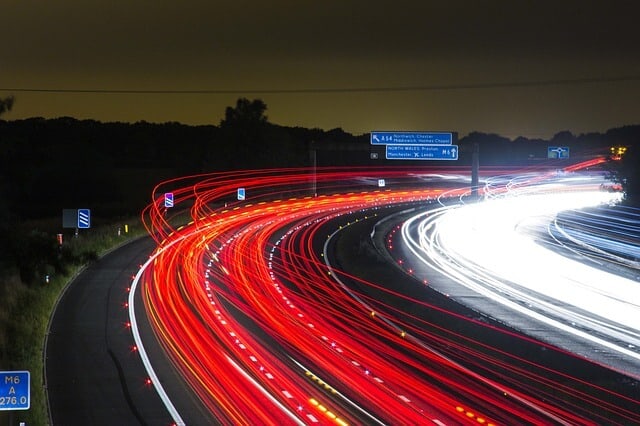 As you may already know, the Dart Charge scheme at the Dartford Crossing opened last weekend meaning all payments are now controlled electronically. Previously we spoke about the concerns surrounding the new Dart Charge however the new free-flow tolls have already received positive feedback due to the fall in congestion; but as with everything there were a few complaints due to the fact that it can be easy to forget to pay.
As you may already know, the Dart Charge scheme at the Dartford Crossing opened last weekend meaning all payments are now controlled electronically. Previously we spoke about the concerns surrounding the new Dart Charge however the new free-flow tolls have already received positive feedback due to the fall in congestion; but as with everything there were a few complaints due to the fact that it can be easy to forget to pay.
People are now beginning to worry that the new Dart Charge was put into place not only to reduce congestion but also to test how free-flow tolls would work on roads across the UK. Some have even claimed that this technology may not only be installed on toll bridges in the future but also on the motorway network, with Colin Sowman, editor of tolling industry trade magazine ITS International, saying he believes this change will happen sooner rather than later. This could be particularly worrying for fleet owners as it means that running a fleet could become a lot more expensive in the future.
Sowman said: “So the technology is certainly there, and what’s more, we’ve seen from the latest announcement how much money needs to be put in [to road building schemes] to counter traffic bottlenecks. If you think about extrapolating that across the whole road network, it’s a huge amount.
“The money’s got to come from somewhere, and it’s currently a problem for the government because these things have effects on particular parts of the electorate.
“If you’re living in a big city and driving an electric car then you’re paying almost nothing in terms of fuel tax and road fund license, whereas if you happen to live in a rural area with very few buses, maybe not much of a train service, and you rely on a normal vehicle, perhaps even a 4×4, it gets very expensive.”
The government has claimed that they have never planned to make motorway roads chargeable and never wanted them to be, excluding ‘special’ roads e.g. bridges or the M6 Toll road. However, figures collected by the Office for Budget Responsibility have shown that the government’s revenue base will have a £13 billion hole in the future due to the introduction of more efficient cars by 2029.
In a statement the Institute for Fiscal Studies said: “How could this revenue be replaced? £13 billion is approximately equivalent to a 3½p increase in the basic rate of income tax, an increase in the main rate of VAT to almost 23 per cent, or a 50 per cent rise in rates of fuel duties.
“None of these options are particularly palatable, and there is little sense in ever higher fuel duty rates for the shrinking base of motorists relying on conventional fuel. Road use, however, appears to be a more sustainable tax base.
“Revenues from road pricing would not erode as vehicles become more efficient, and the charge – assuming it varied by where and when the driving occurred – would provide the right signals to deal better with variation in congestion costs.”
Controversially, some motorist groups support the idea of road charging due to falling revenues rather than rising amounts of traffic. This has been the main reason for road charging in other countries says Edmund King, president of the AA.
He added: “The Government does face a dilemma because as cars gradually become more fuel efficient and, ultimately, hybrid and electric, the fuel duty tax take will diminish. This is why [the US state of] Oregon introduced a pay-as-you-drive system – not because of congestion, but because of falling taxation due to improved gas efficiency.”
King went on to say that he many members of the public are not against the idea of the road charging per say, however they are concerned that future charges won’t be devised fairly.
He said: “Our polls show that drivers are fairly evenly divided on whether pay as you drive tolls are fairer than fuel duty/VED. However, they are united (93 per cent) in saying that they don’t trust any government to introduce a fair system of tolls.
“Drivers have seen too many broken promises, such as the Dartford toll that was meant to be lifted a decade ago when the bridge costs were paid, or the London Congestion Charge, which was meant to stay at £5.”
Due to these worries, King believes that road charging free-flow tolls won’t be installed on the wider road network for a while yet, and added: “Widespread road pricing has been talked about on the UK’s road network since the Smeed Report in the early sixties, and every subsequent study has said that road pricing is ten years away,” says king.
“In our view it probably is ten years away. Any move towards road tolls in the current climate could become a ‘poll tax on wheels’ and backfire on the political party that tried to introduce them.”
Photo by Pixabay
